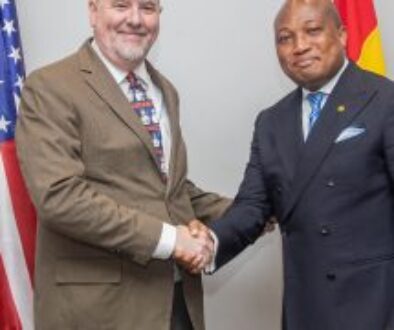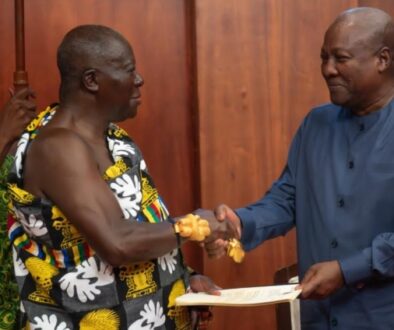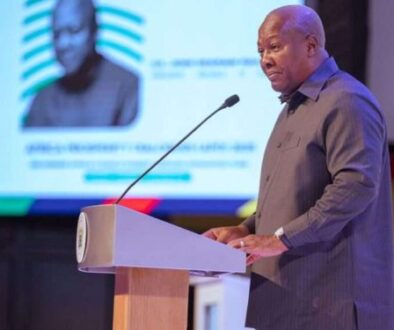Strengthening IGF Systems: District Assemblies urged to digitalise all collection points & enforce compliance with tax obligations
By:Isaac Amoah
A private legal practitioner, who doubles as a former District Chief Executive (DCE) for Amansie South in the Ashanti Region, Mr. Clement Opoku Gyamfi, has proposed several practical and strategic recommendations aimed at strengthening and improving revenue generation across the various Metropolitan, Municipal and District Assemblies (MMDAs) so as to ensure accelerated development.

According to him, if the District Assemblies are committed to strengthening internal generated funds, they should digitalise all collection points, train revenue officers and enforce compliance with tax obligations.

Mr.Clement Opoku Gyamfi (CID) speaking at the conference
The former DCE expressed concerns about the several challenges MMDAs face. He said to reverse the current trend, they needed to focus on innovative revenue generation mechanisms, such as property taxes, business licensing, market levies, and tourism-related taxes.
“By improving our Revenue Collection Units and leveraging digital technologies, we can enhance fiscal autonomy at the local level. The Assemblies should also introduce mandatory training modules for Assembly staff members and elected officials on governance, budgeting, and community engagement to enhance their capacity development,” he added.

A section of the participants
Mr Gyamfi, who is affectionately known as CID in the political space, made the proposal at the opening ceremony of a three-day capacity-building conference organised for the Conference of Ashanti Presiding Members (PMs) held at Miklin Hotel in Kumasi from 21st to 23rd August 2025.
The conference was on the theme: “Strengthening local governance, the opportunities and the challenges.”
Mr. Gyamfi, who was also the chairperson for the opening ceremony, said for MMDAs to institutionalize social accountability tools, they should encourage town hall meetings, community forums, and social audits.

Besides, he called on MMDAs to allocate budgets and roles to zonal, urban and town councils, and build their operational capacity.
He, therefore, declared his support to the call for the election of MMDCEs to deepen local accountability and citizen participation. He reminded the PMs that the journey of strengthening local governance is not an event—it is a continuous process of learning, unlearning, and relearning.
“We must embrace the challenges before us and turn them into opportunities for growth. Let me leave you with the wise words of Theodore Roosevelt: ‘Do what you can with what you have at where you are.’ Let us do exactly that and, together, we will transform our districts into models of effective governance, vibrant local economies, and empowered citizenry,” he stressed.
“As Presiding Members, your leadership is pivotal in ensuring the effectiveness of local governance. You (PMs) are the guardians of procedural integrity and the chief facilitators of inclusive decision-making within the General Assembly. Your role is not merely to chair meetings but to create an atmosphere where open dialogue, mutual respect, and collaborative problem-solving can thrive,” he added.
He continued, “As Winston Churchill once said, ‘The price of greatness is responsibility’, your responsibility to the people in your districts is immense. As neutral leaders, it is your task to ensure that development planning is inclusive, resource allocation is transparent, and Assembly oversight is effective.”






